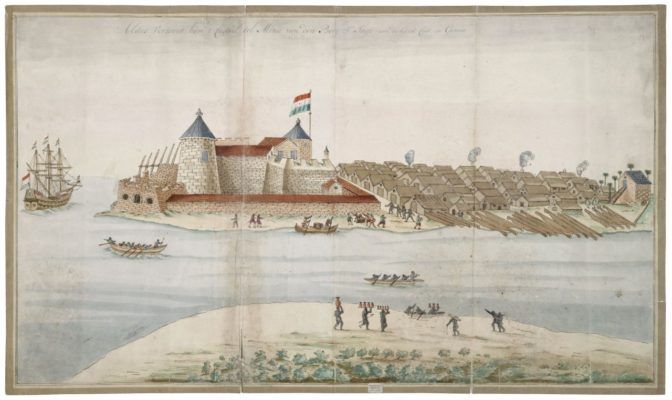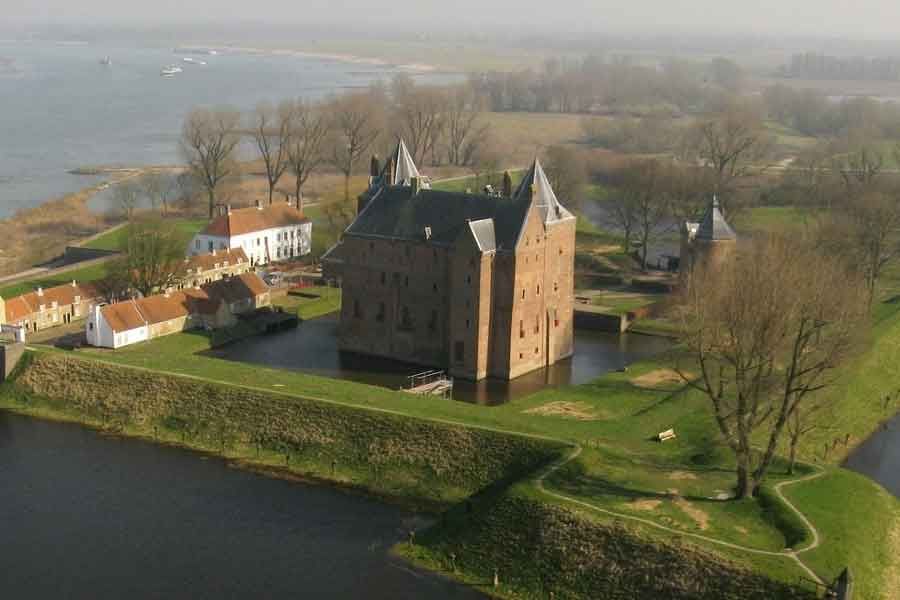Pandora's Archives|Let Love Generate Power Season 2 Writing Proposal

"Please think from the perspective of archival science and tell a short story about the most representative archives."
"This kind of story always starts with a crazy Frenchman," said the Dutchman Yan Plover .
At first glance, this person's Chinese name looks very elegant, but it doesn't mean much. It's just ten swallow plover, which is somewhat similar to himself. His nationality is the Netherlands, but he was born in the northern province of Laban, that is, the Duchy of Brabant that existed in history and was later destroyed by the Netherlands. Therefore, compared with the Dutch in the two Dutch provinces, he looks at the country and history. Not the same. In addition, 9 out of 10 Brabants believe in Catholicism, which is also different from the Protestant Netherlands. Although Yan Plushi is no longer a good Catholic, he often says, "Fuck him, the Protestants stole the Catholic Church."
Born in a remote rural area, his ancestors either sold biscuits or patrolled the forest, but Yan Pluishi became the only intellectual in the family. After he got his doctorate in history from Leiden University, out of fear of starvation, he went to major in archives . After that, he started from an archive in a small city, and gradually moved to the National Archives in The Hague. Later, he became the director of the selection and appraisal department of the National Archives, and then transferred to the director of the research department. In addition, he was also hired by Leiden University as a Leiden's only professor of archives at the time. A few years ago he moved to the University of Amsterdam, where he became the only professor of archives at the University of Amsterdam, and at the same time became a strategic advisor to the National Archives.
"Would you like to become the country's chief archivist in the future?" I asked Yan Plushi.
"I was sitting in the archives looking at the rich historical materials, but I never thought about files, history, or positions." Yan Pluish said pretending to be serious, "I think about women."
But when he was asked "the most representative story about the archives", after all, he still took out his professionalism and told such a story.
It happened during the French Revolution. You know, the French are crazy. At first the thugs burned a lot of the ruling class, including archives, because that was the symbol of power they wanted to spurn. But the burning situation is not right. Some people think that if they continue to burn like this, the evidence that they have poisoned the people will be burned. Without evidence of their tyranny, where is the justification for our rebellion? So the thugs began to zealously protect the archives. That's how the concept of the modern National Archives was born, like so many other things, at the hands of French thugs. From an archival point of view, archives have always been a tool to justify power through historical writing.
" Power always occupies a central position, and the role of archives is not ambiguous. " Yan Pluishi made a simple conclusion, but he also emphasized that just as history entered the era of decolonization and deconstruction, the deinstitutionalization of archives, Decentralization is also unfolding.
"The currency can be decentralized, and of course the archives." After Yan Pluishi commented happily, he began to aggressively attack the mashed potatoes and spinach in front of him.
The conversation above took place at our dinner table in a canal in a backcountry in the Dutch province of Utrecht, my neighbors. He heard that I wanted to propose a writing project on archival science , and he readily agreed to be interviewed and worked out a writing project with me. He gave a mouth and I gave a pen. The problem is that archival science is not a natural subject that sells very well. Many people have the impression that archives or archival science is boring (to a certain extent, this is an appropriate evaluation). What kind of narrative introduction can make up for the congenital defects? Dilemma at our dinner table.
In the end, we decided to start the narrative with the Dutch National Archives , where Yan Plover served as a strategic advisor.
The National Archives (Nationaal Archief) in The Hague is an inconspicuous institution, but its contents are quite amazing. It houses a large number of nautical and colonial archives. It is a nightmare that historians from all over the world cannot escape. The effect is comparable to that of Medusa's place. For Taiwanese historians, the 17th-century Dutch East India Company archives in the National Archives in The Hague are indispensable for the study of early Taiwanese history. Today, almost all Taiwanese historians have been poisoned by the Hague Archives.
But this is only the aspect of the National Archives in The Hague that is best known to the outside world. As the nation's archives, this institution is also responsible for sifting and preserving the public documents that government agencies produce on a daily basis. After entering the information age, how to archive a large amount of digital information has become the most difficult task faced by the National Archives.
Coincidentally, Yan Plushi was the head of the selection and appraisal department of the National Archives, and he had developed a set of methods for identifying and preserving official digital information. Therefore, in addition to being a historian, he could talk about how the National Archives faced the past . The role played (the application of historical materials) can also be used as an archivist/archivist to explain the challenges that the National Archives faces in dealing with the present and facing the future .
The following is our plan for the first four topics. Each topic starts from a specific case, and then extends to more abstract concepts and principles.
Topic One| From the search for the "Charter of Exclusive Commercial Activities issued by the Dutch Parliament to the Dutch East India Company in 1602 for a period of 21 years from the Cape of Good Hope to the Strait of Magellan" to discuss the fundamental logic of the world of archives <br class="smart">Main Image | Dutch East India Company Archive No. 1.04.02 1, National Archives in The Hague
Estimated length|2,500-4,000 words Estimated publication|December 30, 2020

Topic 2 | Why did the Dutch media criticize and demand the permanent closure of the National Archives in 2017? What did the National Archives do wrong?
Main Image|Interior of the National Archives in The Hague Estimated length|2,500-4,000 words Estimated publication|January 13, 2021
Topic 3 | How should the Netherlands face the past history of slavery? What role should the National Archives play in this?
Main image|Estimated length of the debate on slavery in Dutch society today|2,500-4,000 words expected|January 27, 2021

Topic 4 | What contribution did the National Archives of the Netherlands make to the study of early Taiwan history? Can the history of Taiwan based on colonial archives decolonize?
Main Image|Dutch East India Company Archives Estimated Length|2,500-4,000 Words Estimated Publishing|February 3, 2021
These are the four themes we designed around the National Archives of the Netherlands, from the past to the future and back to the past, in this form to show the dynamics of archiving and the archives themselves.
In addition, Yan Plover expressed a wish: if the plan is put into practice, he hopes that it will not only be a writing project in which interviewers and interviewees collaborate, but also develop into a writing project that invites readers to take the initiative . As a professor of archival science, Yan Lingshi is willing to accept questions from Chinese readers. As long as the situation permits, we can conduct interviews and write articles. We are also happy to adjust the interview and writing content at any time according to the interests of readers.
If no one asks new questions after the four topics are over, then we expect to follow a similar pattern, centered on the Dutch medieval castle Museum Road Float (below), and then discuss the relationship between history and archives in depth.

Finally, we believe that the ideal interval between each article is 7-10 days, but the current situation in the Netherlands is very tight and the control is very strict. All teaching and other professional activities of Yan Plough have been changed to online, which often has to accommodate participants from all over the world. The time difference is more time-consuming than normal, and I can only visit him at dinner time, so we tentatively set a maximum interval of two weeks between each article, and if there is an early finish, it will be published in advance.
I hope you all support this project, and welcome questions and suggestions. Yan Plover will answer seriously.
Like my work? Don't forget to support and clap, let me know that you are with me on the road of creation. Keep this enthusiasm together!

























- Author
- More